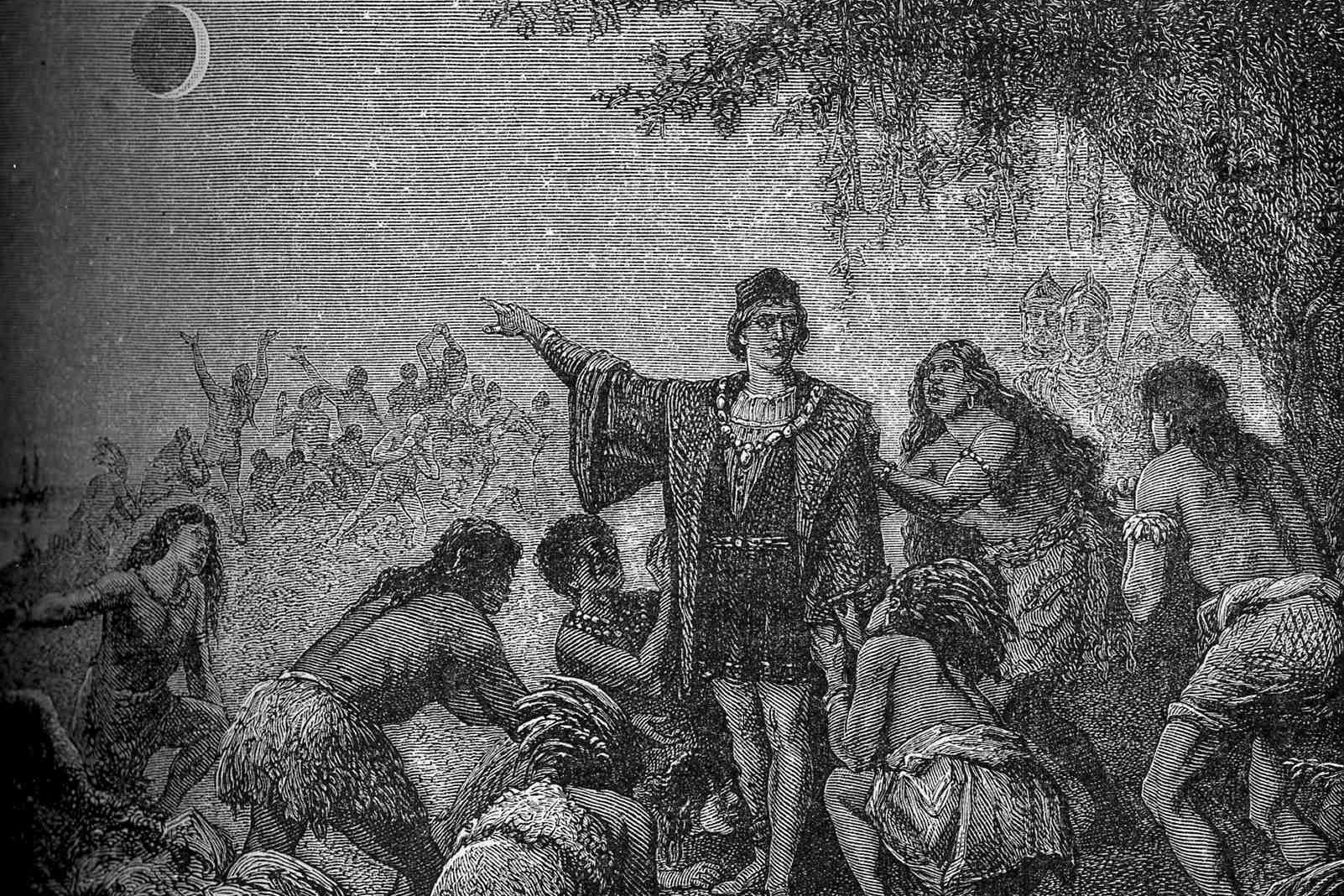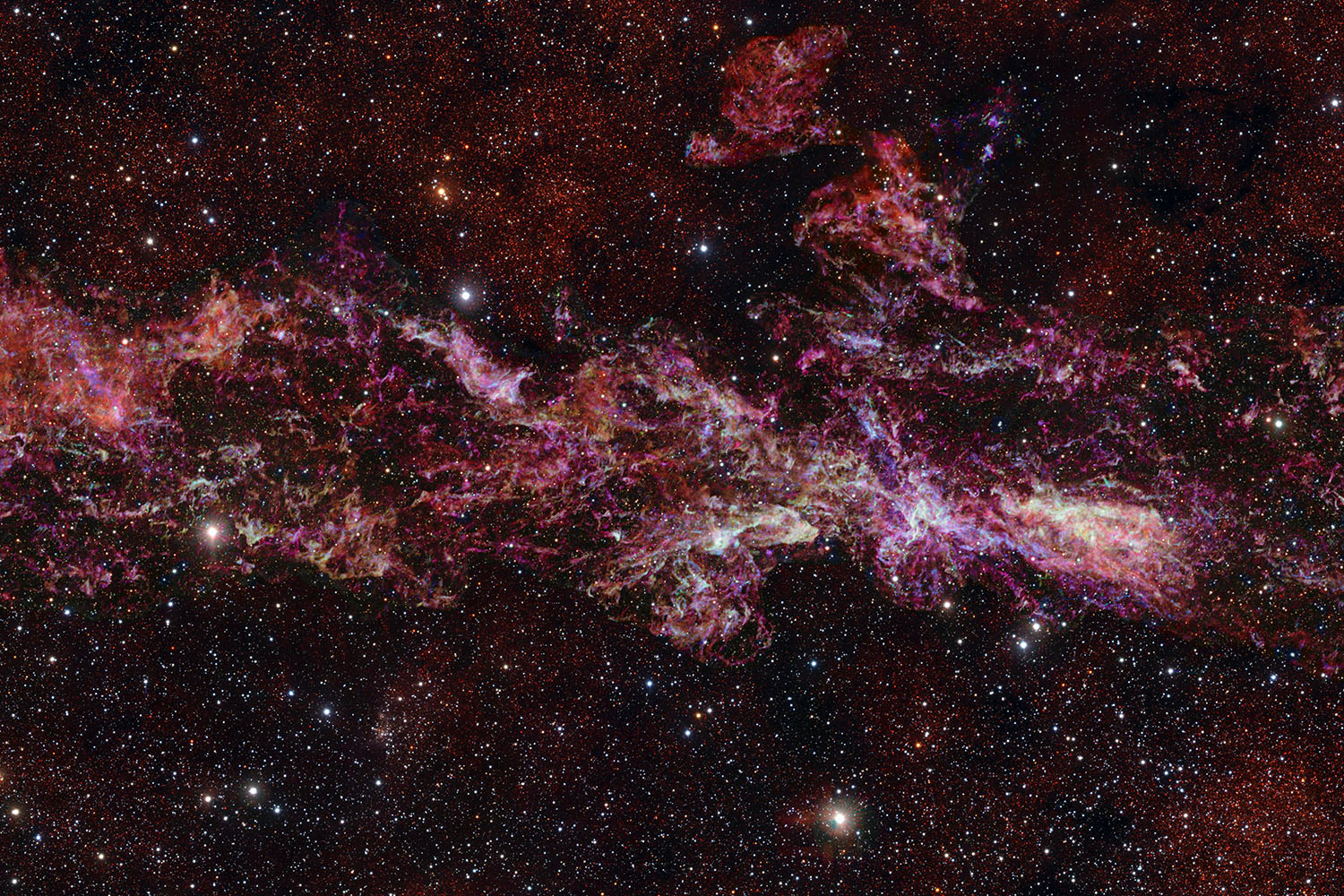Alexus McLeod ’09 Ph.D., associate professor of philosophy in the College of Liberal Arts and Sciences, started his academic path working in the areas of astronomy and geology before moving toward Chinese philosophy, which includes elements of astronomy. He is the author of “Astronomy in the Ancient World: Early and Modern Views on Celestial Events” (Springer 2016), and is completing his next book, “The Forgotten Astronomers: Sky and Cosmos in the Precolumbian Americas” (Springer), which covers the history of astronomy in the Americas before European contact. He discussed the history of solar eclipses and other celestial events with UConn Today.
The Saros eclipse cycle that you describe in your book is the type we will see on Aug. 21. Who first figured out how to predict an eclipse?
Astronomers like the early Chinese and early Maya were the first to recognize these [cycles] because they had this meticulous early observation of the sky. What you notice in the Saros 145 series is the sky aligns exactly the same; that’s what you need to have the same eclipse over the same period of time, which for Saros is in about 18 years. The Earth has rotated about a third around, since the 1999 eclipse in this series. The next eclipse will occur when the Earth rotates about a third around again. You recognize that these happen in 18-year intervals and you can recognize a pattern. [However, not every 18-year eclipse can be viewed, owing to the complexities of the Saros cycles.]
Celestial events often were viewed as signals for rituals and change. What are some of the things you have seen in your study of these events?
In many societies, they would use celestial events – such as eclipses or the particular location of planets – as ways of determining when to engage in certain activities. For example, when you see certain asterisms [groups of stars] raised to a certain level in the sky, it is the time to plant something. They often were keyed into natural cycles, like rain and seasonal cycles. This started taking on new significance as you get the development of different rituals, such that unusual events in the sky are connected to some important event in social or cultural life. Sometimes in societies you would also have divination connected with all of this – this would signal a positive or negative omen for rulers; but often it was an attempt to make sense of the natural world in a way that would give it significance in a human community and culture. For example, even though the early astronomers in China didn’t think the eclipse meant a bad omen, it was a symbol of a particular change in society, the inauguration of a new way of engaging in the community. We do similar things today, like when we make New Year’s resolutions.
The Greeks looked at a specific solar eclipse in 585 B.C. as stopping a war. The skies became dark and they thought they had better make peace or something bad would happen.
There is a similar story in Mesoamerica with the Arawak [indigenous people in South America, historically in the Caribbean]. A group of Europeans tried to demonstrate their power by telling them this eclipse would happen at a certain moment and, when it happened, everybody was astonished. That was the story, at least, from the Spanish side. There’s always been this kind of power connected with the ability to predict these various motions in the heavens. This is part of what the purpose was for the court astronomers, to understand what was going on in nature and thereby possess this type of power.
Edmund Halley [1656-1742], who identified Halley’s Comet, was also observing other things in the sky, including solar eclipses and lunar eclipses. Is this common that astronomers are looking at many things, rather than focusing on one particular type of event?
In early astronomy, you had a tendency to study much of what was going on in the heavens. For example, in early Chinese and Mayan astronomy astronomers were responsible for understanding everything that went on in the celestial realm, whereas today someone might study one small part of this. Like any other field, if you’re going to study galaxy formation you have to know about a lot of other things that happen in the galaxy as well. Today, because our knowledge of the motion of objects in the solar system is almost complete, astronomers don’t focus too much on that. Now we know exactly when eclipses are going to happen, where objects are going. The biggest thing that’s still done in contemporary astronomy concerning the motion of objects is tracing comets we haven’t seen yet or objects too small to recognize from the Earth.
What are your plans for watching the eclipse on Aug. 21?
I’m going with my family to Kentucky. We’ll visit the Mammoth Caves and go on to Bowling Green, Kentucky, which is at the outer edge of totality. Of course, with watching eclipses there is always a chance you’ll get clouded in. We’re going to take the car and roam around in case there are clouds.



